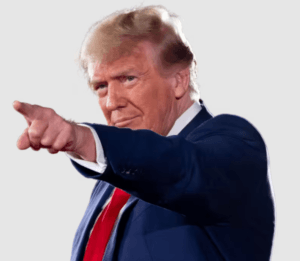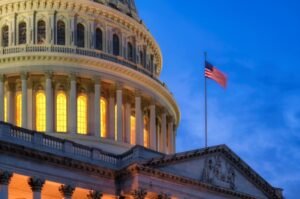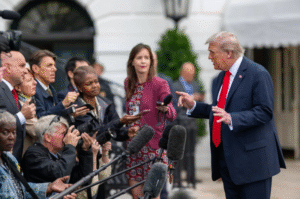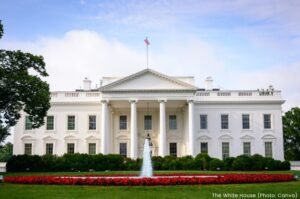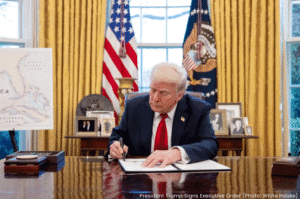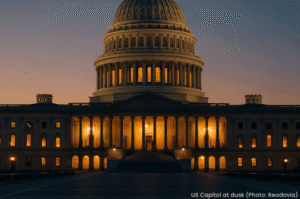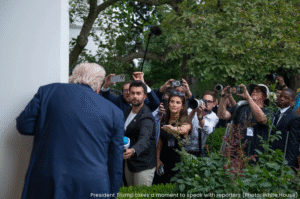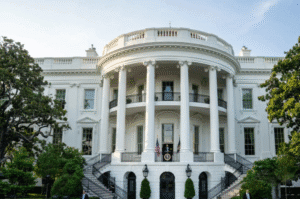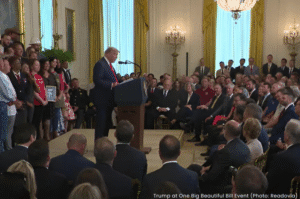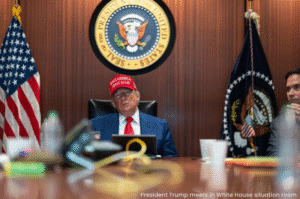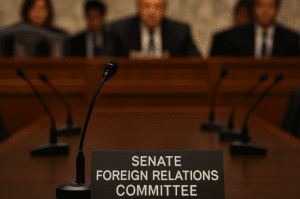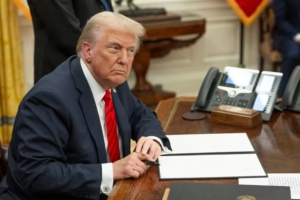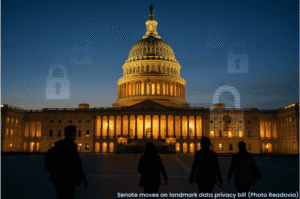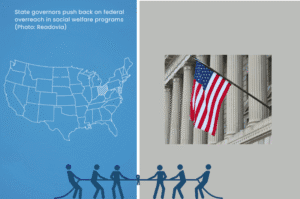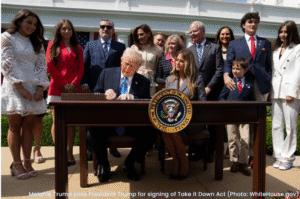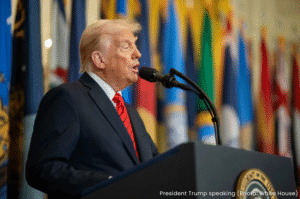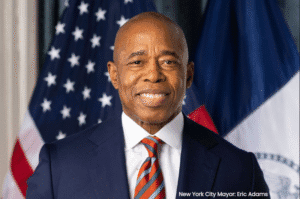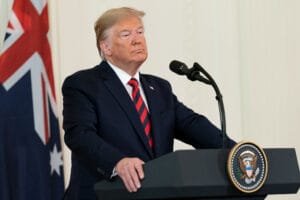
The Consumer Financial Protection Bureau (CFPB) is a pivotal regulatory agency established in response to the financial crisis of 2008, with the primary goal of protecting consumers from unfair, deceptive, or abusive practices in the financial sector. Its functions extend to overseeing financial institutions, enforcing consumer laws, and fostering transparency and fairness in financial transactions. Given the crucial role the CFPB plays in ensuring accountability within the financial sphere, any significant changes in its leadership or operational methodologies are likely to have wide-ranging implications for both consumers and financial entities alike.
Recently, Elon Musk gained attention for his strategic firings at the CFPB, a move that has stirred considerable debate among both business and regulatory circles. These actions are particularly notable given Musk’s influential persona within the tech and automotive industries, leading to questions regarding the intersection of his entrepreneurial ambitions and regulatory governance. His motivations may be rooted in a desire to reshape regulatory frameworks that may hinder innovation or market competition, particularly in sectors where Musk has vested interests, such as finance and technologies associated with electric vehicles and space exploration.
This intersection between Musk’s business interests and the regulatory environment of the CFPB demands careful examination. The repercussions of such strategic firings are not confined to organizational dynamics; they are emblematic of broader trends in how entrepreneurial leaders engage with regulatory bodies. As we delve deeper into Musk’s motivations for these actions, it will become imperative to consider both the immediate and long-term effects these changes may have on the regulatory landscape and consumer protections that the CFPB is designed to uphold. Understanding this nuance will be key to analyzing whether Musk’s approach serves as a benefit or a risk to the financial sector and its consumers.
Overview of the CFPB: Mission and Functions
The Consumer Financial Protection Bureau (CFPB) was established in response to the 2008 financial crisis, with the primary mission of protecting consumers in the financial sector. Created by the Dodd-Frank Wall Street Reform and Consumer Protection Act of 2010, the CFPB aims to ensure that consumers have access to fair and transparent financial products and services. It is tasked with regulating and overseeing a wide array of financial organizations, including banks, credit unions, mortgage servicers, and payday lenders, ensuring that they adhere to federal laws regarding consumer protection.
One of the CFPB’s central objectives is to provide consumers with the necessary tools and information to make informed financial decisions. This includes implementing regulations that promote transparency in financial transactions, developing educational resources, and offering recourse mechanisms for consumers to address grievances against financial institutions. The bureau also performs critical functions such as rulemaking, enforcement, and supervision in order to mitigate unfair, deceptive, or abusive practices in the financial services industry. By prioritizing consumer rights, the CFPB seeks to create a more equitable marketplace.
In addition to its protective functions, the CFPB also serves as a watchdog within the financial industry. It collects and analyzes data on consumer financial practices, which helps in identifying trends and emerging risks. This empirical knowledge informs the bureau’s regulatory decisions and helps guide legislative initiatives aimed at improving financial consumer protections. For corporations, including those associated with figures like Elon Musk, the implications of CFPB regulations can be profound. Businesses must navigate the complexities of compliance to avoid penalties and to uphold their reputation as responsible entities in the eyes of consumers. Understanding the mission and functions of the CFPB is essential for analyzing Musk’s strategic firings within the context of potential regulatory conflicts and corporate governance.
A Closer Look at Elon Musk: Business Ventures and Influence
Elon Musk is a prominent entrepreneur whose ventures span multiple industries including automotive, aerospace, and technology. His most notable companies, Tesla and SpaceX, have revolutionized their respective fields but also intersect with complex regulatory frameworks, such as those enforced by the Consumer Financial Protection Bureau (CFPB). At the helm of Tesla, Musk has led the company to become a global leader in electric vehicles, pushing the boundaries of sustainable transportation while navigating various financial regulations. These regulations are crucial as they govern consumer protection laws that impact the automotive financing ecosystem.
SpaceX, founded by Musk in 2002, has redefined the aerospace industry with a focus on reducing space travel costs and enhancing accessibility to space. The intersection of SpaceX with regulatory oversight becomes evident when considering its involvement in federal contracts and partnerships. A clear understanding of the implications of financial regulations is essential, as failure to comply could jeopardize lucrative contracts or funding opportunities, ultimately influencing the company’s growth trajectory.
Furthermore, Musk’s influence extends beyond these companies, impacting the tech industry at large. His ventures often inspire innovation, prompting competitors to adapt and thrive under the evolving landscape shaped by new technologies and changing consumer expectations. However, as the leader of such influential enterprises, Musk also faces potential vulnerabilities linked to the CFPB’s regulations. Any strategic decision made by him or the companies under his guidance may bear scrutiny, especially concerning consumer financial services. Musk’s approach to managing these regulatory challenges is critical in determining how his businesses navigate risks while seizing growth opportunities in a climate that emphasizes consumer protection.
The Rationale Behind Musk’s Firings at the CFPB
Elon Musk’s decision to implement strategic firings at the Consumer Financial Protection Bureau (CFPB) has garnered significant attention and raised various questions regarding the underlying motivations. At the core of these actions lies Musk’s goal to reshape the organization to better align with his vision for the financial regulatory landscape. One of the primary justifications Musk employed for these firings is the belief that a streamlined workforce within the CFPB would allow for a more agile and responsive regulatory body, capable of adapting to the rapidly evolving financial technology sector.
An interpretation of Musk’s approach suggests that he views the firings as a necessary step toward reducing the existing regulatory scrutiny that his businesses may face. By replacing key personnel with individuals who are more aligned with his business philosophy, Musk could be aiming to mitigate the regulatory constraints that have historically governed financial institutions. Moreover, he acknowledges that such a shift could allow for a change in policy focus, creating a regulatory environment that is more favorable to innovation and entrepreneurship.
Additionally, Musk’s actions can be viewed within the broader context of his extensive leadership experience in high-stakes industries. He has consistently advocated for deregulation, which he believes stimulates progress and fosters a competitive marketplace. By initiating these changes at the CFPB, Musk may be signaling a desire to cultivate a regulatory environment that prioritizes technological advancement over traditional oversight. This strategic overhaul reflects a calculated risk, as it could either support his business endeavors or generate backlash from regulatory bodies or the public concerned about consumer protections.
In summary, the rationale behind Musk’s firings at the CFPB is rooted in his ambition to transform the organization to better serve the interests of his ventures, potentially lowering regulatory hurdles while promoting a more progressive regulatory approach.
Potential Benefits for Musk’s Business Interests
The strategic firings at the Consumer Financial Protection Bureau (CFPB) may have several potential benefits for Elon Musk and his diverse business ventures. One of the most significant advantages lies in the potential reduction of compliance costs. Regulatory agencies like the CFPB impose various requirements on businesses, particularly in the financial sector, which can lead to substantial expenditures. By streamlining oversight and potentially alleviating stringent regulations, Musk could lower operational costs, allowing him to allocate more resources towards innovation and development across his companies.
Moreover, the firings could grant Musk and his enterprises greater freedom from regulatory constraints that may traditionally stifle entrepreneurial pursuits. In industries such as electric vehicles, space exploration, and technology, a less restrictive regulatory environment can foster a culture of accelerated growth and creativity. Without the pressure of navigating an intricate web of regulations, companies may swiftly adapt to market changes, experiment with cutting-edge technologies, and scale operations efficiently. This sense of agility is crucial for Musk’s ambitions, especially in fast-paced sectors where technological advancements are critical for maintaining competitive advantage.
Additionally, the strategic firings could create a more favorable operating environment. A shift in the regulatory landscape often leads to an increase in investor confidence, as businesses perceive lower risks associated with compliance and regulatory penalties. With this newfound stability, Musk’s companies could attract more investments, facilitating expansion efforts and supporting innovative projects that align with his vision of advancing humanity through technology. Thus, the firings at the CFPB may serve as a catalyst for not only Musk’s business interests but also broader economic growth through enhanced entrepreneurship and innovation.
Criticisms and Ethical Considerations
Elon Musk’s strategic firings at the Consumer Financial Protection Bureau (CFPB) have drawn significant scrutiny, raising several ethical concerns that merit further exploration. One critical aspect is the potential conflict of interest arising from Musk’s varied business interests, particularly in sectors regulated by the CFPB. Critics argue that influential leaders in such industries should refrain from taking drastic measures that may compromise the integrity of regulatory frameworks designed to protect consumers. This situation begs the question: are corporate interests overshadowing the public good in this instance?
The ramifications of these firings could extend beyond internal structures, potentially impacting consumer protections. The CFPB was established with the mission of safeguarding American consumers from unfair financial practices. When a high-profile figure like Musk makes unilateral decisions that disrupt the agency’s function, some experts caution that it could weaken the safeguards that the CFPB has fought to implement. Consumers might face a scenario where their interests are deprioritized in favor of corporate agendas, a situation that raises serious ethical dilemmas regarding accountability and transparency.
Furthermore, the role of corporate influence in regulatory agencies has come under increasing examination. Some critics contend that the reliance on corporate heads, such as Musk, may lead to a governance structure that aligns too closely with corporate interests rather than public welfare. Public reactions to Musk’s actions suggest a divided sentiment. Proponents state that such firings are essential for fostering innovation and adaptability within the agency. In contrast, many voices in the public domain argue that this kind of leadership could undermine the CFPB’s credibility and mission, signaling a broader trend of corporate encroachment into regulatory spaces.
The Broader Context: Corporate Influence on Regulation
Corporate influence over regulatory bodies has been a longstanding concern among policymakers, academics, and the public. This influence can manifest in various ways, often blurring the lines between regulation and corporate interests, with significant implications for both governance and public trust. Historical examples, such as the lobbying efforts of the tobacco and pharmaceutical industries, illustrate how large corporations can shape regulatory policies to fit their agendas, frequently at the expense of public welfare.
The financial sector, including organizations like the Consumer Financial Protection Bureau (CFPB), also reflects this trend. Since its inception in response to the 2008 financial crisis, the CFPB has faced considerable pushback from major financial institutions, which have aimed to influence its rule-making and operations. This tension highlights a critical aspect of regulatory agencies: their vulnerability to external pressures from corporate leaders who may perceive regulations as burdensome or injurious to their business objectives. As corporate leaders, such as Elon Musk, engage in strategic firings or other maneuvers within regulatory bodies, they may inadvertently or intentionally heighten the level of scrutiny surrounding the integrity of these organizations.
The impact of corporate influence on regulations extends beyond individual companies to affect the overall effectiveness of regulatory frameworks. When corporations successfully lobby against stringent regulations, it can lead to a dilution of protections intended for consumers and the broader public. This trend can subsequently erode public trust, as citizens may perceive that regulatory bodies are more attuned to corporate interests rather than serving as impartial watchdogs.
Understanding this dynamic is essential, especially in light of public expectations for regulatory agencies like the CFPB to safeguard consumer rights. Therefore, it is crucial for stakeholders to remain vigilant regarding corporate practices that may impact the regulatory landscape, ensuring that the interests of the public are prioritized over those of powerful corporate entities.
Future Implications for the CFPB and Financial Regulation
The recent strategic firings at the Consumer Financial Protection Bureau (CFPB) by Elon Musk have sparked considerable discourse regarding the future trajectory of not only the CFPB but also the broader scope of financial regulation. The implications arising from this shift could redefine the procedures and priorities within consumer finance. For instance, reductions in personnel, especially from leadership roles that govern consumer finance oversight, may lead to a less aggressive regulatory stance on issues crucial to consumer protection.
As the CFPB pivots under new leadership dynamics, stakeholders in the financial sector may experience alterations in compliance expectations. With a potential emphasis on deregulation, some experts speculate that consumer advocacy might face challenges, possibly resulting in less stringent oversight over financial institutions’ practices. This could raise concerns about predatory lending behaviors, as fewer resources devoted to consumer protection might hinder the CFPB’s ability to deploy adequate enforcement mechanisms.
Moreover, Musk’s decision to reshape the bureaucracy at the CFPB may indicate a deeper philosophical shift toward prioritizing market flexibility over consumer safeguards. Should this trend consolidate, we may witness financial firms operating with greater latitude, potentially sidelining the protections that consumers have grown to expect. The eventual outcome could foster an environment that rewards rapid innovation among financial institutions at the potential cost of stability and ethical standards.
This scenario presents a dual-edged sword. While innovation and market responsiveness are essential for industry growth, the viability of those advancements must also be weighed against the imperative need for robust consumer protections. Therefore, as the CFPB navigates these transitional waters, the potential for widespread change in financial regulation becomes an increasingly relevant topic for discussion among policymakers and industry leaders alike.
Conclusion: Evaluating the Impact of Musk’s Actions
Elon Musk’s strategic firings at the Consumer Financial Protection Bureau (CFPB) have ignited significant discussions surrounding their potential repercussions within the financial landscape. On one hand, these firings may be perceived as a decisive move toward fostering innovation and efficiency within the bureau, with the prospect of refreshing its approach to consumer protection. Advocates argue that introducing new leadership could lead to a more agile regulatory environment, allowing for swifter responses to evolving market conditions. This could, in theory, enhance corporate accountability and streamline regulatory practices that have sometimes been criticized for being overly bureaucratic.
Conversely, the implications of these firings cannot be dismissed lightly. Critics assert that the abrupt removal of experienced staff poses substantial risks to consumer safety and regulatory integrity. The CFPB was established to protect consumers from financial abuses; however, if the bureau loses its institutional knowledge and continuity, it may struggle to fulfil its mission effectively. Moreover, the concerns about potential politicization of the bureau following such actions bring to light the delicate balance between corporate influence and regulatory oversight. The long-term impact on consumer trust in financial systems could also be profound, potentially leading to increased skepticism surrounding both the CFPB and the larger financial industry.
Ultimately, the balance of benefits and risks stemming from Musk’s firings at the CFPB remains a complex issue. As observers monitor the unfolding consequences, it is essential to consider the implications for the future of financial regulation. The actions taken by Musk not only reflect a shift in leadership but also raise critical questions about the accountability and effectiveness of financial oversight in a rapidly changing economic environment. Moving forward, the focus should be on ensuring a regulatory framework that adequately protects consumers while adapting to new challenges posed by innovation and market dynamics.




